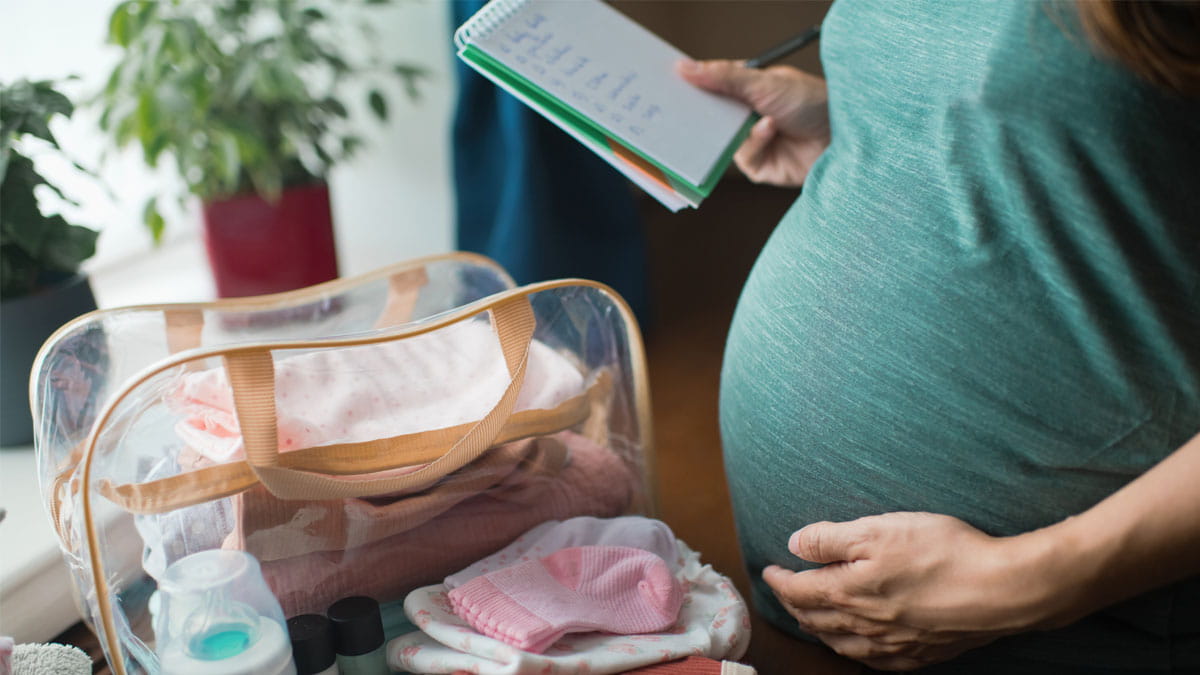Blog article
Elective surgery 101: Packing for your hospital stay
By HBF
3 MINUTES
19 September 2024

While it might not be as exciting as creating a packing list for a summer holiday to Europe, preparing a checklist for your hospital stay is just as important.
To help reduce your mental load pre-surgery, we created this blog to provide you with a detailed checklist of essential items to bring with you to hospital.
(Don’t forget to bookmark for later!)
Hospital packing checklist
1. Personal ID and health insurance documents
- ID and insurance information: Bring a valid ID, your health insurance card, and any other relevant documents, including pre-admission paperwork and consent forms if they haven’t already been submitted online.
- Emergency contact information: Have a list of emergency contacts, including family members or friends who may need to be reached.
2. Comfortable clothing
- Loose-fitting clothes: Pack comfortable, loose-fitting clothing, including pyjamas, a dressing gown, and enough clean underwear for your stay. Hospital gowns are obviously provided, but having your clothes can make you feel more at home. We recommend opting for clothing made from soft, breathable fabrics like cotton or moisture-wicking materials like bamboo, and clothing that is easy to put on and take off, like button-ups.
- Non-slip slippers or socks: Bring slippers or socks with non-slip soles to prevent falls and provide extra comfort.
- Jumper: Hospitals are known for being aircon-friendly no matter the time of year, so it’s a good idea to pack a jumper in case you get chilly.
3. Toiletries and Personal Care Items
- Basic toiletries: Pack travel-sized items like shampoo, conditioner, body wash, cleanser, toothpaste, and a toothbrush. While many hospitals provide basic toiletries, having your own can make you feel more comfortable.
- Moisturiser and lip balm: Remember how we mentioned hospitals’ deep love for aircon? This can make the environment dry in addition to being cold. To combat this, bring your favourite moisturiser and lip balm.
- Hairbrush or comb: Little things like brushing your hair can help you feel more refreshed and maintain a sense of normalcy, making you feel more like yourself during your hospital stay.
4. Entertainment and Relaxation
- Books and/or magazines: Pack a few books, magazines, or an e-reader to keep yourself entertained during downtime.
- Tablet or smartphone: Hospital TV can get pretty old, pretty quickly. Consider loading up your device(s) with movies, TV shows, or games to help pass the time. Don’t forget your headphones!
- Headphones: Even if The Real Housewives of Beverly Hills is your jam, it might not be everyone else’s. Keep things considerate with a good pair of headphones.
- Chargers: You don’t want to be hit with a 10% battery warning just when things are getting interesting (will Sutton and Kyle last the distance?). Don’t forget your chargers! (And if you’re aiming for overachiever status, consider packing a portable power bank too.)
5. Important medical items
- Medications: If you take any prescription or over-the-counter medications regularly, bring them in their original containers, along with a list of dosage instructions.
- Medical equipment: If applicable, bring any medical equipment you regularly use, such as CPAP machines or walking aids.
- Medical history: A summary of your medical history, including any allergies, current medications, and past surgeries, can be useful for hospital staff if not already provided.
Additional hospital packing tips
- Label your belongings: Label your items with your name to avoid confusion and ensure nothing gets lost. This is especially helpful for personal items like clothing and toiletries.
- Avoid overpacking: Focus on only bringing items you’ll truly need or want during your stay.
- Double and triple-check: Before you head to the hospital, review your packing list to ensure you haven’t forgotten any essentials.
If you have any specific questions about what to pack, we recommend reaching out directly to your specialist or the hospital where your procedure will be performed. They can provide expert guidance tailored to your specific situation and surgery.
This article contains general information only and does not take into account the health, personal situation or needs of any person. In conjunction with your GP or treating health care professional, please consider whether the information is suitable for you and your personal circumstances.
Related topics